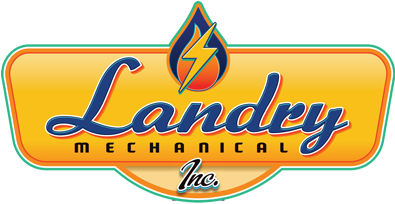Our Frequently Asked Questions
Deciding which kind of water heater to get can be challenging, especially if you have all the options available. Here are some factors to consider.
- Fuel Type: Determine your area’s most cost-effective and readily available fuel type. Options include electricity, natural gas, propane, and solar energy.
- Size: Calculate the right size based on your household’s peak-hour hot water demand. This ensures you have enough hot water during high usage times without wasting energy.
- Energy Efficiency: Look for models with high energy efficiency ratings to reduce operating costs and environmental impact. Energy Star-rated heaters often offer the best savings.
- Cost: Factor in both the initial purchase price and long-term operating costs. Sometimes a higher upfront cost can mean lower energy bills down the line.
- Type: Choose between tankless (on-demand) water heaters, which provide hot water as needed and can be more energy-efficient, and traditional storage tank water heaters, which keep a large volume of hot water ready at all times.
- Installation Requirements: Make sure your house can accommodate the installation requirements (like venting for gas heaters or additional electrical circuits for electric models).
If you’re still unsure which water heater is best for you, consult a professional plumber.
Low water pressure is aggravating and can be caused by several issues.
- Clogged Pipes: Mineral deposits or debris can build in pipes over time, reducing water flow and causing low water pressure.
- Corroded Plumbing: Older pipes can corrode over time, restricting water flow and reducing pressure.
- Faulty Fixtures: Clogged or malfunctioning aerators or valves can lead to low water pressure at individual fixtures like faucets or showers.
- Water Leaks: Leaks in the main or municipal lines can result in low water pressure.
- Partially Closed or Malfunctioning Shut-Off Valves: If the main water shut-off valve or in-line calves aren’t fully open, it can restrict water flow.
- Pressure Regulator Failure: If your home has a pressure regulator, a failure or improper setting can sometimes lead to low or higher than normal water pressure.
Frequent tripping can indicate that your home’s circuits are drawing more power than they can safely provide. This could be due to high-power appliances running simultaneously or potentially faulty appliances causing short circuits.
An electrician can assess each circuit’s electrical load and suggest redistributing appliances, upgrading your electrical panel, or repairing specific faulty wiring issues to solve the problem.
In many places, replacing a breaker panel requires a permit. This is because the job involves significant electrical work that must comply with local building codes and safety standards. Permits ensure that the work is done safely and inspected by a qualified official. Failing to obtain a permit can lead to potential safety hazards, fines, or issues when selling your home.
It’s a good idea to check with your local building or permit office to understand your area’s specific requirements and processes.
Most homeowners use over-the-counter drain cleaners to remove clogs, but many wonder if relying on them is safe.
Drain cleaners can effectively clear pipes, but you must use caution. Many of these products contain harsh chemicals like sodium hydroxide or sulfuric acid, which can cause severe burns if they touch your skin or you inhale the fumes. These chemicals can also damage plumbing over time, especially with older pipes.
Using a drain cleaner occasionally shouldn’t be an issue; however, if you have persistent clogs, call a plumber for safe drain cleaning.
Popping, groaning, or banging sounds from the water heater can be frightening, but they don’t mean you’re in imminent danger. In most cases, these noises are caused by sediment buildup at the bottom of the tank. The sediment heats along with the water, causing the unusual sounds. Sediment buildup can reduce efficiency and lead to premature system failure, so it’s wise to get the tank flushed every year or two.
The frequency of changing your HVAC filter can vary based on several factors, such as the type of filter, your home’s air quality, and usage patterns. Basic filters should generally be changed every 30-90 days, while more advanced pleated filters can last up to six months. Homes with pets, allergies, or high dust conditions should consider more frequent changes to maintain air quality and system efficiency.
Since 2008, 16 Years
Yes
Yes, we do installation, repair, and ongoing maintenance.
